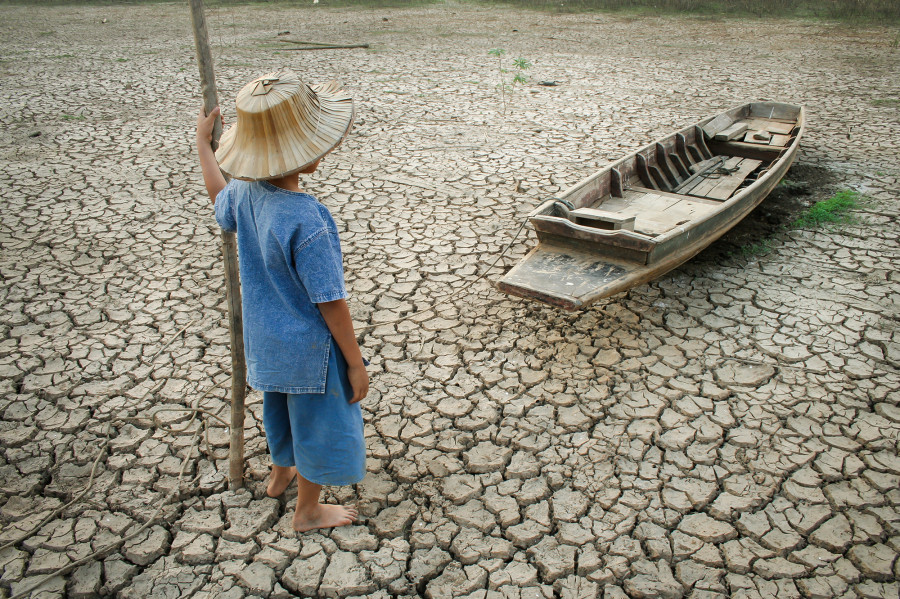Columns
Notes from a climate change defeatist
It’s time for governments to decide ultimately whether they are for the planet or against.
Amish Raj Mulmi
For the past few years, one of my constant travel companions has been the Helm Field Guide to the birds of the Indian subcontinent. I’m a prodigal (and amateur) birdwatcher; I’ve recently gone back to it after I stopped post-school. It’s an incredibly satisfying act if you prefer to walk—it requires little investment (I’m yet to pick up a pair of binoculars, and I have little expertise in high-definition photography); and there’s a certain thrill that comes from identifying a bird you haven’t seen before. ‘Birding’, as birdwatchers call the act, is equally meditative: to walk around aimlessly listening to bird songs, gazing into the canopy or the underbrush, and taking in the green as one does so.
There have been few instances where I’ve felt well-rewarded: seeing Himalayan Griffons take off from their roost in Limi valley; a barren field full of foraging Red-billed and Alpine Choughs in Lo Manthang; Great Barbets and Yellow-Billed Blue Magpies flying across a pine forest in the Kumaon mountains; and Brahminy Kites swooping down to fish in the Arabian Sea off the Kerala coast. Last week, in Goa, as monsoon clouds darkened the skies and the sun played hide and seek, I was birding once more, watching Southern Coucals glide across a lush green glade and Green Bee-eaters flit off and on their wire perches feeding on the bounty the rains bring. At the same time, on the other side of the world, the Amazon was burning.
That we are already facing the consequences of human-driven climate change and environmental destruction is not new. But as I walked in Goa, one of the constant queries in my mind was, why are our policymakers—and this is not just in Nepal, but across the world— adamant about pursuing the current paths of ‘development’ and ‘growth’ when the planet has been ravaged by these models? For, it is not just the Amazon that burns. One of Bombay’s only green patches will soon see its trees cut down for a metro carshed; in Goa, iron-ore mining has ravaged the Western Ghats; and in Kathmandu, trees are to be cut down for road expansion projects, while in Nijgadh, some hope has emerged for the 2.4 million trees after Province 2 has said an alternative airport site needs to be developed. And these are just a few examples from our neighbourhood.
No one can deny that delivering ‘development’ to its people should be one of the priorities of any government. New infrastructures create new economies, which in turn create new opportunities. But there is something fundamentally wrong with our outlook on what ‘development’ means. Of course, a new airport, a new road, a new electricity project, will alter ecosystems. But aping growth models and simply transplanting them from one country to the next has clearly not worked. Globalisation has led to a neoliberal convergence in the interests of government and big business, and an alternative policy framework is largely rejected by most nations and corporates.
A possible solution could be to tap into the human predilection for greed. If the heart of capitalism lies in profit-making, can businesses profit through production methods non-inimical to the planet’s interests? Can incentivising consumption that does not depend on traditional modes of production work, while levying heavy fees for dependence on natural resource extraction? This would necessitate eschewing products which depend on economies of scale; preferring localised producers with minimum impact; creating the infrastructure to accompany renewable energy sources; and individualised development models that prioritise ecosystems over people. At the same time, the current climate change debate puts the onus on individual consumers to ‘do something’ while big corporations pollute and devastate the planet (100 companies are responsible for 71 percent of all greenhouse gas emissions since 1988). One could argue that consumer preference can lead to corporations changing their behaviour. But as long as the notion of incremental profit through lower costs lies at the heart of the modern economic system, it is difficult to make advances on this front without warranting government action.
The current impasse on our planet’s future has turned me into a bit of a defeatist. I do not believe the world as it currently functions has the requisite ability to defer what author Elizabeth Kolbert has termed the ‘sixth extinction’, a period of mass extinction driven by anthropocene impact on the environment and climate, despite glimpses of hope. I have sometimes pondered over whether militant action can resolve this dilemma, along the lines of the Sea Shepherd Conservation Society. This is quite unlikely; the prerogative of violence rests with the state, and in most instances, it will not hesitate to use violence against those it will term ‘eco-terrorists’. But frustration levels are climbing across the world, and it is not difficult to imagine similar scenarios in the future. Can we then depend on our governments to take necessary action when it’s clear their priorities are different? For example, we know that Nepal will face the brunt of climate change—rainfall will be erratic, landslides and flooding more common, and agriculture will be severely impacted. Does our current leadership inspire hope in policymaking which can address these issues? Forget Nepal, which lacks the resources to do much; if the leader of the world’s biggest superpower refutes climate change, what can the future hold?
This column began from birding, but it is difficult to see a diving kingfisher and not think about the inevitable rise in sea levels and the mass extinctions that are a result of our resource extraction methods. There are several heroes who’ve emerged in this dire era, not least the young Greta Thunberg, who’ve all become the voice of a generation that demands change. While they give us hope, the despair that comes from disappearing glaciers tells us it is simply not enough. Perhaps it is time to borrow lessons from unionisation; perhaps we can create a wide-ranging ideological front, distinct from conventional political ideas, which simply posits itself as being for the planet and against.
***
What do you think?
Dear reader, we’d like to hear from you. We regularly publish letters to the editor on contemporary issues or direct responses to something the Post has recently published. Please send your letters to [email protected] with "Letter to the Editor" in the subject line. Please include your name, location, and a contact address so one of our editors can reach out to you.




 18.12°C Kathmandu
18.12°C Kathmandu















